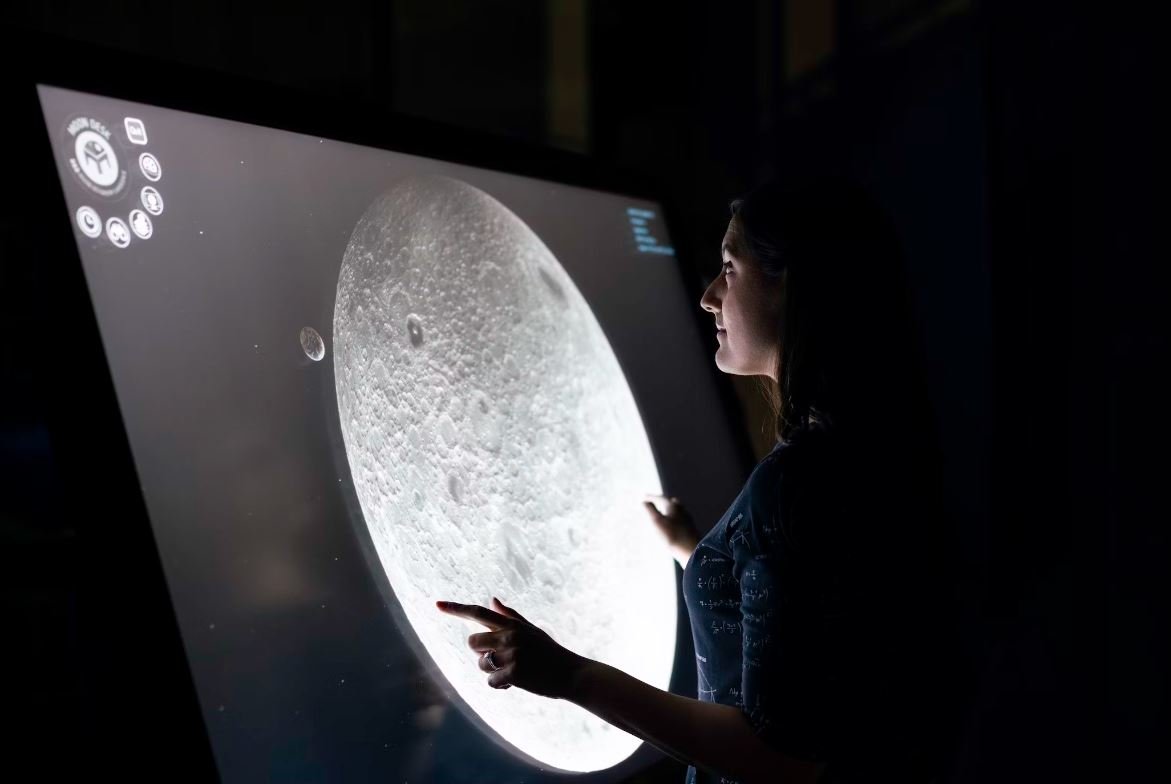Will AI Replace IT?
Rapid advancements in artificial intelligence (AI) have sparked a debate about whether AI will replace traditional information technology (IT) roles. While AI is poised to revolutionize many industries, the question remains: will AI take over IT jobs, rendering human IT professionals obsolete?
Key Takeaways:
- AI presents both opportunities and challenges in the IT industry.
- Automation may replace routine IT tasks, but human expertise and creative problem-solving remain essential.
- IT professionals can leverage AI to enhance their job performance and improve efficiency.
- The IT industry should adapt and evolve alongside AI technologies to stay relevant.
- A collaborative approach between AI and human IT professionals promises the best outcomes.
It is undeniable that AI has the potential to automate certain aspects of IT, but this does not necessarily mean that it will replace the entire IT workforce. **AI’s strength lies in its ability to analyze vast amounts of data quickly and accurately**, enabling it to handle repetitive and time-consuming tasks more efficiently than humans. However, **AI currently lacks the decision-making abilities and adaptability of human professionals** who possess critical thinking and problem-solving skills.
As AI continues to evolve, it is important to recognize that **AI and IT professionals can work together synergistically**. While AI can assist with tasks such as system monitoring, data analysis, and cybersecurity, **human IT professionals can focus on higher-level activities** such as strategic planning, complex problem-solving, and client management. This collaboration allows for more efficient and effective IT operations.
The Benefits and Limitations of AI in IT
AI offers several benefits in the field of IT. Firstly, **automation through AI reduces human error**, improving the reliability and accuracy of IT processes. Secondly, **AI can analyze complex patterns and data sets** at a much faster rate than humans, enabling quick identification of security threats and efficient troubleshooting. Thirdly, **AI can optimize system performance and predict potential issues**, helping organizations proactively address and mitigate problems.
However, it is essential to recognize the limitations of AI in IT. While AI algorithms excel at processing structured data, **they struggle with unstructured and ambiguous data**, which is often encountered in the IT field. Furthermore, **AI lacks the ability to understand context and exercise human judgment**, making it difficult to deal with novel situations that require flexible thinking and adaptability.
Real-World Examples
Let’s examine some real-world examples to understand how AI is augmenting rather than replacing IT professionals:
| Role | AI’s Contribution |
|---|---|
| IT Professional | Focuses on maintaining overall network health and resolving complex issues that AI cannot handle. |
| AI | Monitors the network, detects anomalies, and alerts human IT professionals for further investigation. |
In this example, AI enhances network monitoring by automating routine tasks, freeing up human IT professionals to concentrate on critical problem-solving.
| Role | AI’s Contribution |
|---|---|
| IT Professional | Interprets and acts on the insights generated by AI to make informed decisions for the organization. |
| AI | Analyzes large datasets to identify patterns, trends, and anomalies that aid IT professionals in their decision-making process. |
In this example, AI assists IT professionals in making data-driven decisions by leveraging its ability to process and analyze vast amounts of information efficiently.
Looking to the Future
While some routine IT tasks may be automated through AI, it is clear that **AI alone cannot replace the role of human IT professionals**. The value of human expertise, adaptability, and creativity in IT cannot be overstated. As AI continues to evolve in the IT industry, **it is crucial for professionals to be open to learning and developing new skills to complement AI technologies**.
The future of AI in IT is not about replacement; it is about collaboration, redefining roles, and working together to harness the power of AI while leveraging unique human capabilities. **Embracing this symbiotic relationship will lead to innovative solutions and drive the IT industry forward**.

Common Misconceptions
Misconception 1: AI will completely replace IT jobs
One common misconception is that artificial intelligence (AI) will replace IT jobs entirely, leaving tech professionals unemployed. However, this is not entirely true. While AI has the potential to automate certain tasks and improve efficiency, it is unlikely to completely replace the need for human IT professionals.
- AI can enhance IT systems by automating repetitive tasks
- AI can free up IT professionals to focus on more complex and strategic projects
- AI can create new job opportunities in the field of AI development and maintenance
Misconception 2: AI will replace all IT roles equally
Another misconception is that all IT roles will be replaced by AI in the same manner. While it is true that some routine and repetitive tasks can be automated, not all IT roles will be affected equally. Some IT roles require a higher level of expertise, critical thinking, and decision-making, which are not easily replaceable by AI.
- Higher-level IT roles that involve strategic planning and decision-making are less likely to be completely replaced
- Skill sets that involve creativity and complex problem-solving are difficult to replicate with AI
- AI may complement certain IT roles by providing data-driven insights and making processes more efficient
Misconception 3: IT professionals don’t need to adapt to AI
One misconception is that IT professionals don’t need to adapt and learn new skills in the era of AI. However, staying relevant in the industry requires IT professionals to adapt and acquire new skills that can address the changing technological landscape.
- IT professionals can learn skills related to AI development, implementation, and maintenance
- Understanding AI algorithms and data analytics can enhance the capabilities of IT professionals
- Continuous learning and upskilling are essential for keeping up with the advancements in AI technology
Misconception 4: AI will make human IT professionals obsolete
There is a misconception that AI will make human IT professionals obsolete, making their skills and expertise irrelevant. However, human IT professionals possess unique qualities that cannot be replicated by AI, such as emotional intelligence, empathy, and the ability to understand and adapt to complex business requirements.
- Human IT professionals can understand the contextual nuances of a specific business environment better than AI
- Interpersonal skills and the ability to collaborate are crucial for successful IT projects
- AI can complement human IT professionals by augmenting their capabilities and helping them make better-informed decisions
Misconception 5: Implementing AI means replacing the entire IT infrastructure
Some people believe that implementing AI requires a complete overhaul of the existing IT infrastructure, which is time-consuming and costly. However, this is a misconception. AI can be integrated into the existing IT systems gradually and selectively, based on the specific needs and objectives of the organization.
- AI can be implemented in a phased manner, starting with smaller projects and gradually expanding to larger-scale initiatives
- Organizations can leverage AI technologies without discarding their existing IT infrastructure completely
- AI can be integrated into existing applications and systems, enhancing their functionality and performance

The Rise of Artificial Intelligence in the IT Industry
As artificial intelligence (AI) continues to advance, it raises questions about its potential impact on various industries, including information technology (IT). This article explores the possibilities of AI replacing traditional IT jobs and highlights the transformative power of technological innovation. Each table below provides unique insights into this evolving landscape.
The Growth of AI in IT Jobs
Table showcasing the exponential growth of AI-related job postings in the IT industry over the past five years.
IT Jobs at Risk of Automation
A breakdown of different IT roles that are currently at risk of being automated due to advancements in AI technology.
Skills Most Valued in AI Integration
A comparison of the top skills and expertise sought by employers looking to integrate AI within their IT departments.
Emerging Technologies in AI
Harness the appeal of this table: Discover the latest cutting-edge technologies driving the advancements in AI, shaping the future of IT.
Impact of AI on Job Satisfaction
Delve into interesting findings regarding the effect of AI on IT professionals‘ job satisfaction levels, examining factors such as autonomy and creativity.
Funding Trends in AI Startups
A visualization of the monetary investments in AI-related startup companies, illustrating the enthusiasm and support for AI within the IT sector.
Benefits and Challenges of AI Adoption
An overview of the advantages and hurdles faced by organizations when adopting AI technologies for their IT infrastructure.
Gender Diversity in AI-Driven IT Companies
A revealing analysis of gender representation within AI-driven IT companies, highlighting strides made towards achieving a more inclusive workforce.
The Impact of AI on IT Security
An in-depth exploration of how AI is revolutionizing IT security, including the detection and prevention of cyber threats in real-time.
AI and Human Collaboration in IT
A captivating look at successful collaborations between AI systems and human IT professionals, emphasizing the importance of teamwork in the evolving industry.
In conclusion, the emergence of AI in the IT industry presents both opportunities and challenges. While AI has the potential to automate certain roles, it also requires the collaboration and expertise of human IT professionals to harness its full potential. By staying at the forefront of AI advancements, the IT industry can adapt and thrive in this rapidly changing technological landscape.
Frequently Asked Questions
Will AI eventually replace IT jobs?
While AI technologies are rapidly advancing, the complete replacement of IT jobs by AI is unlikely. AI is more likely to augment IT roles and improve efficiency rather than replacing humans altogether. It may automate certain tasks but skilled IT professionals will remain essential for decision making, problem-solving, and overseeing AI systems.
What specific IT job roles are at risk of being replaced by AI?
Some specific IT job roles that are more prone to automation include routine-based tasks such as data entry, network monitoring, and basic troubleshooting. However, AI will create new job roles and opportunities in areas like AI development, data analysis, and cybersecurity.
How will AI impact the IT industry in the future?
AI will have a significant impact on the IT industry by automating repetitive tasks, improving decision-making processes, and enhancing cybersecurity measures. IT professionals will need to adapt their skills to work alongside AI systems, evolve their roles, and focus on higher-level strategic tasks.
Can AI replace the creativity and problem-solving abilities of IT professionals?
No, AI cannot fully replace the creativity and problem-solving abilities of IT professionals. While AI can assist in data analysis and identify patterns, IT professionals bring human insights and experience to solve complex problems and innovate new solutions.
Will AI eliminate the need for IT education and certifications?
No, AI will not eliminate the need for IT education and certifications. As AI becomes more prevalent in the IT industry, IT professionals will need to continuously update their skills and knowledge to effectively work with AI technologies and leverage their potential.
What skills will be in demand for IT professionals in the AI era?
In the AI era, IT professionals with skills in machine learning, data analysis, cybersecurity, software development, and AI systems management will be in high demand. Additionally, skills in communication, critical thinking, and adaptability will remain important for collaboration between humans and AI systems.
Can AI replace the need for human oversight in IT security?
No, human oversight will remain critical in IT security even with the rise of AI. Although AI can help detect anomalies and potential threats, human IT professionals are needed to interpret the data, make informed decisions, and respond to complex security incidents.
What are the potential benefits of AI for IT professionals?
AI can provide numerous benefits for IT professionals such as automation of repetitive tasks, improved efficiency, enhanced accuracy in data analysis, increased productivity, and the ability to focus on strategic initiatives that require human expertise.
Will AI replace entry-level IT jobs?
While AI may automate some entry-level IT tasks, it is unlikely to completely replace entry-level IT jobs. Entry-level positions often involve learning and gaining foundational experience, which is valuable for career progression and understanding the broader IT ecosystem.
Should IT professionals be concerned about their job security due to AI?
IT professionals should not be overly concerned about job security due to AI. While AI will reshape certain aspects of IT roles, it will also create new opportunities and require human expertise for managing and developing AI systems. Continuous learning and adaptation to emerging technologies will be crucial for long-term career growth.




